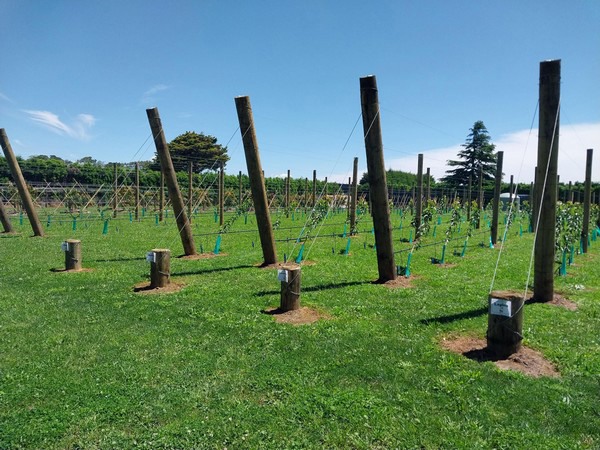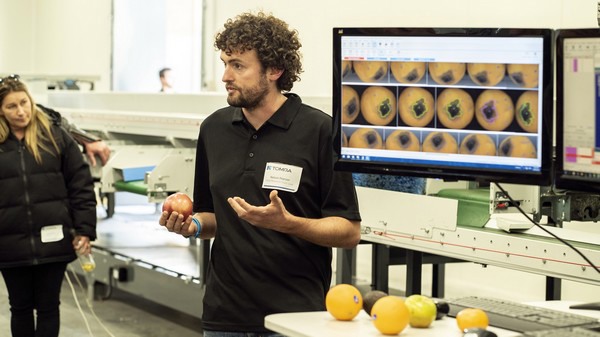Scientific research into the causes and effects of growing conditions on fruit will make sorting and grading even more effective. Tomra Food has revealed the first details about its Research Orchard, the only facility of its kind run by a manufacturer of sorting and grading solutions. The orchard occupies a 2.5-hectare (6.2-acre) plot in Waikato, New Zealand, next to the company's 5,100-square-meter Field Research Center, which opened in 2022.

Richard Pickard, Tomra Fresh Food's Field Research Manager, explains: “The orchard's purpose is to monitor the flowering and fruiting of plants at each stage, adding to our understanding of the core commodities handled by our sorters and graders. We will assess fruit defects, quality issues, and key characteristics such as flavor, sweetness, and firmness. This complements our Fruit Science program, which for ten-plus years now has been researching how the chemical and physical properties of fruit correlate with fruit quality and sorting requirements.”
Almost half the orchard's ground area has been planted, with three varieties of kiwifruit, five varieties of apples, four varieties of cherries, and avocados. Lemons, mandarins, limes, oranges, and blueberries will also be planted in the coming weeks. Fruits are being cultivated both conventionally and with experimental techniques, including UFO (upright fruiting offshoot) cherries, FOPS (future orchard production system) apples, and under-cover in-bag blueberries. Cultivation at the Research Orchard is also forward-looking in its mindfulness of sustainability with materials used and water irrigation.
Building on a scientific foundation
Tomra Food possesses what is believed to be the world's largest library of fruit data, acquired from hundreds of thousands of fruit samples and analyzed for factors such as flavor, firmness, storage potential, defects, and the influence of weather conditions. It is this strong scientific foundation of fruit knowledge that the Research Orchard will build on.

Brittany Jaine, the company’s Commodity Science Team Lead, commented: “For scientific studies, we need high-quality data plus an understanding of the full history of each piece of fruit we analyze. The Research Orchard provides a controlled source of fruit, where we know all pre- and post-harvest conditions, such as climate, irrigation, sprays, and handling. From this base, we can draw accurate conclusions with confidence. Even deeper understanding of customers’ challenges by obtaining more detailed information about the pre-and post-harvest physiology of our core commodities, we will gain even greater insights into the quality challenges faced by our customers, how and why they occur, and how best to detect them when sorting and grading.”
“Customers will also be able to visit our orchard and discuss the challenges they face. Replicating these challenges in-field will enable us to understand their problems and develop the best possible solutions fully. This will help strengthen TOMRA's position as the leading provider of the world's most effective sorting, grading and post-harvest solutions,” concludes Jaine.
For more information:
Marijke Bellemans
Tomra
Tel: +32 (0)476 74 19 18
Email: marijke.bellemans@tomra.com
www.tomra.com/food
